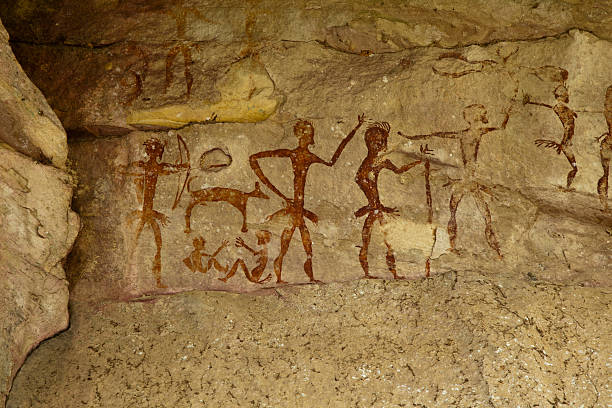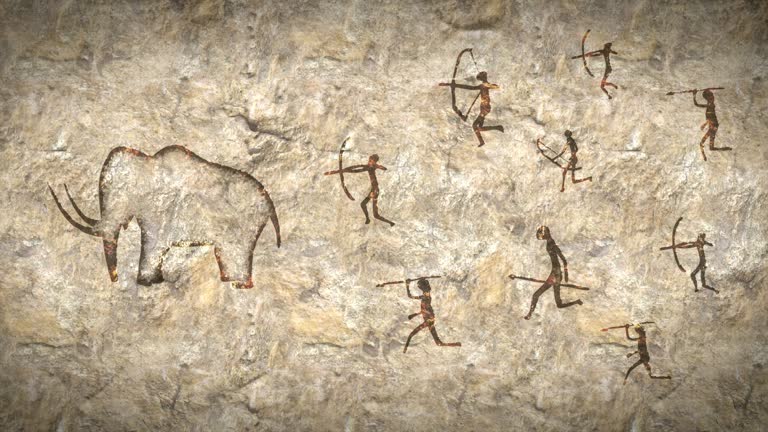tunisianropemaxxer
addicted to nicotine
- Joined
- Jul 9, 2025
- Posts
- 6,421
- Reputation
- 12,055
We all know that our ancestors (From the beginning of man-kind) had better lives than us.They we're healthier,stronger,tougher and in general more manly than you.
We also know that being healthy makes you more attractive.
As of now i've only said shit everyone knows.
But the thing is that,not everyone knows how to apply this for themselves and what habits to actually take and which to leave.
In this guide I will try my best to educate you about what your ancestors did and how to imitate them to your best ability.
Thank you for taking the time to read
We also know that being healthy makes you more attractive.
As of now i've only said shit everyone knows.
But the thing is that,not everyone knows how to apply this for themselves and what habits to actually take and which to leave.
In this guide I will try my best to educate you about what your ancestors did and how to imitate them to your best ability.
Your ancestors woke up when the sun rised,roughly 6 to 7 am depending on region,season,etc..They drank water,and started looking for theyre next meal asap.After finding a prey they followed it around at a walking pace,for hours.They purposefully tired they're prey and after alot of walking,all of them ran at full speed at them to kill it.They ate they're first meal at roughly midday (12pm-1pm). After that,they rested,sat down,maybe even took a tiny nap here and there.After an hour or two of resting they went hunting again,so they could eat at night before sleeping.They either followed the same process as earlier or if they didn't find meat,resorted to eating plants(at roughly 6 to 8pm) and they went to bed.
(Pre-historical cave paintings)


(Pre-historical cave paintings)


Humans wake up early and roughly at the same hour depending on the time the sun rises,which is roughly the same time everyday(depends on season,region,etc..)and also because they're brains got used to waking up at the same time over and over again.
They didn't eat breakfast because they're only source of food was meat (which would have rotten and attracted other hunters to they're sleeping camp) and plants that would have attracted bugs and worms making they're sleeping experience less calm.
The tribes that thrived the most we're the ones located next to rivers,why you may ask,because they always had access to water,whenever.They roughly ate at the same time because they're stomachs has gotten used to eating at roughly the same time because each hunting session took time at roughly the same time and took the same amount of time almost everyday,therefore they're hunger hormone (aka ghrelin)spiked at the perfect time,as soon as they could eat.
They took breaks after eating so they didn't have to feel sloggy,heavy,etc.. while hunting and also to allow they're bodies to digest.
They ate at night to make sure they didn't wake up with extreme hunger and have the energy for tommorow's hunt.
Sources:
1.Ghrelin and circadian rhythm

 pubmed.ncbi.nlm.nih.gov
pubmed.ncbi.nlm.nih.gov
2.Meal timing and circadian health
 pmc.ncbi.nlm.nih.gov
pmc.ncbi.nlm.nih.gov
3.Circadian misalignement negative impacts

 www.pnas.org
www.pnas.org
They didn't eat breakfast because they're only source of food was meat (which would have rotten and attracted other hunters to they're sleeping camp) and plants that would have attracted bugs and worms making they're sleeping experience less calm.
The tribes that thrived the most we're the ones located next to rivers,why you may ask,because they always had access to water,whenever.They roughly ate at the same time because they're stomachs has gotten used to eating at roughly the same time because each hunting session took time at roughly the same time and took the same amount of time almost everyday,therefore they're hunger hormone (aka ghrelin)spiked at the perfect time,as soon as they could eat.
They took breaks after eating so they didn't have to feel sloggy,heavy,etc.. while hunting and also to allow they're bodies to digest.
They ate at night to make sure they didn't wake up with extreme hunger and have the energy for tommorow's hunt.
Sources:
1.Ghrelin and circadian rhythm

Ghrelin is impacted by the endogenous circadian system and by circadian misalignment in humans - PubMed
The human circadian system regulates hunger independently of behavioral factors, resulting in a trough in the biological morning and a peak in the biological evening. However, the role of the only known orexigenic hormone, ghrelin, in this circadian rhythm is unknown. Furthermore, although shift...
2.Meal timing and circadian health
Timing Matters: The Interplay between Early Mealtime, Circadian Rhythms, Gene Expression, Circadian Hormones, and Metabolism—A Narrative Review - PMC
Achieving synchronization between the central and peripheral body clocks is essential for ensuring optimal metabolic function. Meal timing is an emerging field of research that investigates the influence of eating patterns on our circadian rhythm, ...
3.Circadian misalignement negative impacts
PNAS
Proceedings of the National Academy of Sciences (PNAS), a peer reviewed journal of the National Academy of Sciences (NAS) - an authoritative source of high-impact, original research that broadly spans the biological, physical, and social sciences.
The main habits you should imitate are the following:
-Waking up with sunlight (roughly at the same time)
-Eating meat and plants(deer meat,cow meat,spinach,apples,corn,etc..)
-Intermittent fasting (allowed to eat from 12pm to 8pm)
-Hydrating yourself
-Resistance training(Your ancestors used to climb alot and fight)
-As little screens as possible
(Extras)
-DO NOT DRINK MILK.Do you think your ancestors ever drank milk,Fuck no.They didn't have time for that,only milk they consumed was they're mother's breast milk and this is why most of the population lactose intolerant.If you still want to eat dairy,just don't do it excessively.
-Make sure you're not too stressed,humans faced fear,stress,etc.. which raised cortisol as soon as humanity began,because it's normal and actually good for you as long as it's not excessive and is acute (aka fight or flight mode).
Sources:
1.Waking up with sunlight

 pubmed.ncbi.nlm.nih.gov
pubmed.ncbi.nlm.nih.gov
2.Intermittent fasting
 pmc.ncbi.nlm.nih.gov
pmc.ncbi.nlm.nih.gov
3.Blue lights effect on sleep and circadian rhythm

 bmcglobalpublichealth.biomedcentral.com
bmcglobalpublichealth.biomedcentral.com
4.Cortisol

 pubmed.ncbi.nlm.nih.gov
pubmed.ncbi.nlm.nih.gov
5.Lactose intolerance
-Waking up with sunlight (roughly at the same time)
-Eating meat and plants(deer meat,cow meat,spinach,apples,corn,etc..)
-Intermittent fasting (allowed to eat from 12pm to 8pm)
-Hydrating yourself
-Resistance training(Your ancestors used to climb alot and fight)
-As little screens as possible
(Extras)
-DO NOT DRINK MILK.Do you think your ancestors ever drank milk,Fuck no.They didn't have time for that,only milk they consumed was they're mother's breast milk and this is why most of the population lactose intolerant.If you still want to eat dairy,just don't do it excessively.
-Make sure you're not too stressed,humans faced fear,stress,etc.. which raised cortisol as soon as humanity began,because it's normal and actually good for you as long as it's not excessive and is acute (aka fight or flight mode).
Sources:
1.Waking up with sunlight

Psychophysiological effects of early morning bright light exposure in young adults - PubMed
The effects of bright light on circadian rhythms in man are well documented. Nevertheless the theoretical basis and the rules for the practical utilization of light exposure as therapy need still to be better defined. The present study determined to what extent a 2-hr bright light exposure...
2.Intermittent fasting
The influence of intermittent fasting on the circadian pattern of melatonin while controlling for caloric intake, energy expenditure, light exposure, and sleep schedules: A preliminary report - PMC
We hypothesized that if we control for food composition, caloric intake, light exposure, sleep schedule, and exercise, intermittent fasting would not influence the circadian pattern of melatonin. Therefore, we designed this study to assess the ...
3.Blue lights effect on sleep and circadian rhythm

Pre-sleep screen time and screen time addiction as shared determinants of poor sleep and obesity in adolescents aged 11–14 years in Scotland - BMC Global and Public Health
Background The overall quantity of screen time has been associated with short sleep duration and increasingly sedentary lifestyles, leading to adiposity. The aim of this research was to explore which components of screen time usage are shared determinants of poor sleep and higher adiposity in...
4.Cortisol

Three-month-olds' visual preference for faces and its underlying visual processing mechanisms - PubMed
This study was aimed at investigating the face preference phenomenon and its underlying mechanisms at 3 months of age. Using an eye-tracker apparatus, Experiment 1 demonstrated that 3-month-olds prefer natural face images to unnatural ones, replicating and extending previous evidence obtained...
5.Lactose intolerance
-Sleep at the same time everyday and wake up at the same time
-Eat deer meat,cow meat,red meat in general and plants like spinach,corn and fruits like apples,etc..
-Fast from the time you wake up till 12pm and stop eating at 8pm.
-Calculate the amount of water you need based on bodyweight and exercise
-Do high intensity low volume training and fighting sports.(Mma or boxing is ideal)
-Lower screen time by as much as possible.
-Eat deer meat,cow meat,red meat in general and plants like spinach,corn and fruits like apples,etc..
-Fast from the time you wake up till 12pm and stop eating at 8pm.
-Calculate the amount of water you need based on bodyweight and exercise
-Do high intensity low volume training and fighting sports.(Mma or boxing is ideal)
-Lower screen time by as much as possible.
Thank you for taking the time to read

@pashanimair @takethewhitepill @turkcelfatcel @heightmax @Jager


